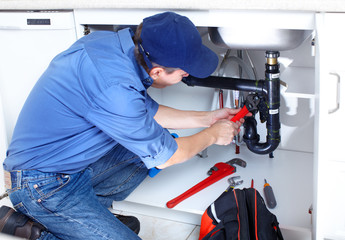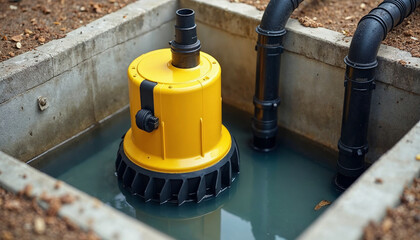Plumber Westminster plays a vital role in maintaining the infrastructure of modern society. Their work goes far beyond fixing leaks and unclogging drains. Plumbing systems are complex networks that ensure the safe distribution of water and proper waste disposal. Without the expertise of plumbers, the comfort and sanitation of daily life would be compromised.
Plumbers handle both residential and commercial systems, adapting to various challenges. They install and repair pipes, valves, and fixtures to maintain water flow and drainage. A skilled plumber understands water pressure, pipe materials, and connection methods. Their work requires precision and knowledge to prevent costly damages and ensure efficiency.
Plumbing systems are subject to wear and tear over time. Corrosion, blockages, and leaks can develop unexpectedly. Plumbers use specialized tools to diagnose and repair these issues promptly. Quick response to such problems prevents structural damage and health hazards.
Plumbing involves more than visible fixtures. Behind walls and beneath floors lie networks of pipes and drainage systems. Plumbers must understand building codes and safety regulations. Proper installation ensures that water pressure and flow remain balanced.
Plumbers often work in challenging environments. Tight spaces, heavy lifting, and exposure to water and chemicals are common. Protective gear and safety protocols are essential in preventing injuries. Their ability to work under pressure makes them invaluable in emergencies.
Modern plumbing incorporates advanced technologies. Leak detection systems, smart water meters, and water filtration systems are now common. Plumbers are trained to install and maintain these technologies. Their expertise ensures that these systems function properly and efficiently.
Plumbing also includes heating and cooling systems. Hot water heaters, boilers, and radiators require regular maintenance. Plumbers diagnose issues with temperature control and pressure levels. Their work ensures comfort and energy efficiency in homes and businesses.
Water conservation is an important aspect of plumbing. Plumbers install low-flow fixtures and water-saving devices. Proper maintenance of plumbing systems reduces water waste. This contributes to environmental sustainability and lower utility costs.
Drainage systems are critical in preventing flooding and water damage. Plumbers install and maintain sump pumps and backflow prevention systems. They also clear blockages in sewer lines and storm drains. Efficient drainage protects properties from water-related damage.
Plumbers are trained to identify and handle hazardous materials. Lead pipes, asbestos insulation, and chemical buildup pose health risks. Plumbers follow strict safety protocols when dealing with such materials. Proper disposal and replacement ensure safe water quality.
Emergency plumbing services are often required at inconvenient times. Burst pipes, clogged drains, and gas leaks require immediate attention. Plumbers provide 24/7 services to address these issues. Their quick response prevents further damage and restores normalcy.
Plumbing inspections are essential for property maintenance. Plumbers assess pipe conditions, water pressure, and fixture functionality. Early detection of issues allows for timely repairs. This prevents costly damage and extends the lifespan of plumbing systems.
Renovations and new construction projects require plumbing expertise. Plumbers design and install water and drainage systems. They collaborate with contractors and architects to ensure proper integration. Their work supports the overall structural integrity of buildings.
The role of plumbers extends to public infrastructure. Municipal water and sewage systems rely on skilled plumbers. Maintenance and upgrades of these systems prevent contamination and service disruptions. Plumbers play a key role in maintaining public health and safety.
Plumbing apprenticeships and certifications are essential for career advancement. Plumbers undergo rigorous training in pipe fitting, welding, and system diagnostics. Continuous education ensures that they stay updated with new technologies and regulations.
Plumbers often work alongside other tradespeople. Electricians, HVAC technicians, and builders rely on plumbers for coordinated efforts. Effective communication and teamwork are crucial in large projects. Plumbers ensure that water and waste systems align with other building components.
Commercial plumbing involves larger-scale systems. High-rise buildings, factories, and shopping centers require complex water and drainage networks. Plumbers install industrial-grade pipes and fixtures. Their work ensures that these systems can handle high demand and pressure.
Plumbers also specialize in gas line installation and repair. Gas leaks pose significant safety risks. Plumbers use specialized equipment to detect and fix leaks. Proper installation of gas lines ensures safe operation of stoves, heaters, and appliances.
Eco-friendly plumbing solutions are becoming more popular. Rainwater harvesting systems, greywater recycling, and solar water heaters are in demand. Plumbers are trained to install and maintain these systems. Their work supports sustainable living and reduces environmental impact.
Plumbing codes and regulations vary by region. Plumbers must stay updated on local requirements. Compliance with these standards ensures safe and efficient plumbing systems. Permits and inspections are often required for major plumbing projects.
Plumbers handle both indoor and outdoor plumbing systems. Irrigation systems, outdoor faucets, and drainage channels require maintenance. Freezing temperatures and heavy rainfall can cause damage. Plumbers ensure that outdoor systems function properly year-round.
Water quality testing is part of modern plumbing services. Plumbers test for contaminants and mineral buildup. Water softeners and filtration systems improve water quality. Proper maintenance of these systems ensures clean and safe water.
Plumbing requires problem-solving skills and technical knowledge. Diagnosing hidden leaks and complex blockages requires experience. Plumbers use advanced equipment, such as video cameras and pressure sensors. Their expertise ensures effective and lasting solutions.
Plumbers also provide customer education. They advise homeowners and businesses on proper maintenance and water conservation. Simple habits, such as avoiding grease buildup and monitoring water pressure, prevent damage. Education helps clients save money and reduce water waste.
Plumbing emergencies can be stressful for property owners. Plumbers provide reassurance and professional guidance. Clear communication about the problem and solution builds trust. Their professionalism and expertise ease customer concerns.
Plumbers contribute to community health and safety. Proper sanitation and clean water access prevent disease and contamination. Plumbers’ work supports the overall well-being of society. Their role is essential in maintaining a healthy environment.
The demand for skilled plumbers remains strong. Aging infrastructure, population growth, and technological advancements drive this demand. Plumbers’ ability to adapt and innovate ensures long-term career opportunities. Their expertise remains valuable across residential, commercial, and public sectors.
Plumbers are often underappreciated despite their essential role. Their work directly impacts comfort, safety, and sanitation. Skilled plumbers ensure that water flows smoothly and waste is managed efficiently. Their contribution to modern living is undeniable.



